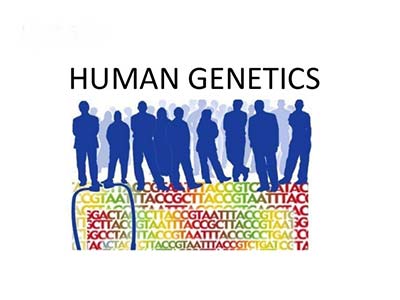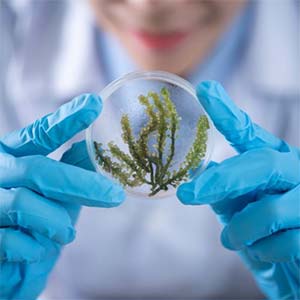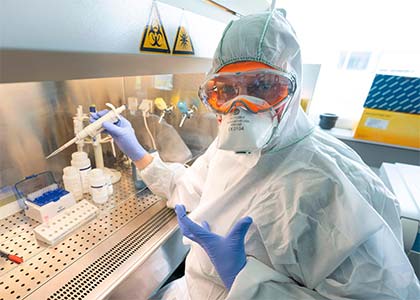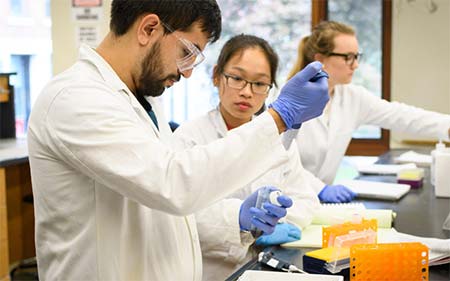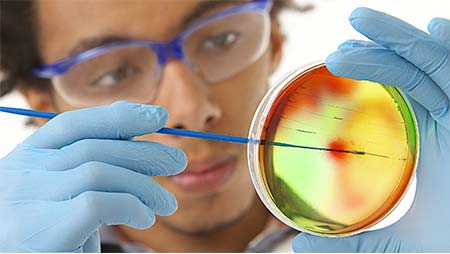The M.Sc Molecular Biology and Human Genetics students can find ample job opportunities across different sectors. There are numerous job roles available for M.Sc Molecular Biology and Human Genetics students. They are mainly hired in biotechnology and microbiology industries. Although there are many job roles, in this article we try to discuss few important job roles that offer excellent growth opportunities for the M.Sc Molecular Biology and Human Genetics students.
In this article we have tried to explain a few important roles that are very crucial for a career in M.Sc Molecular Biology and Human Genetics.
Clinical Scientist (Genomics)
As a clinical scientist (genomics) one is responsible to work on genomics and gene structure. The clinical scientists (genomics) are required to examine the patient samples to identify genetic and genomic abnormalities, which may cause inherited or acquired diseases.
Role of a Clinical Scientist (Genomics)
As a Clinical Scientist (Genomics) one will be working closely with other health care professionals to provide advice to patients about diagnosis, treatments and help predict whether other family members or future generations are at risk from abnormality.
Responsibilities of a Clinical Scientist (Genomics)
As a Clinical Scientist (Genomics) one is responsible to:
- Use scientific, technical and clinical knowledge to analyse and interpret the results of routine and complex tests carried out by the other members of the laboratory
- Write fully interpretive reports for clinicians and other healthcare professionals who have requested tests and advise them on clinical strategies.
- Develop and device new investigation strategies taking into account the clinical problems of genetic diseases and the clinical relevance of the inherited genetic abnormalities
- Participate in research and development and translate any new techniques and assays into routine diagnostic service
- Interpret quality control and quality assurance data
- Take responsibility for a specialist area or service or the management of a laboratory or department
Genetic Counsellor
As a Genetic counsellor one is responsible to help the patients and their families understand and make informed decisions about a range of genetic conditions. They are required to counsel the parents with genetic problems who are planning for kids.
Role of Genetic Counsellor
As a genetic counsellor one is responsible to interpret, explain genetic information to patients and to support them and their families to make use of this information. As a genetic counsellor one is responsible to help them to understand the medical facts, including how heredity factors contribute to their condition and the options of dealing with the risk of recurrences.
Responsibilities of a Genetic Counsellor
As a genetic counsellor one is needed to:
- Manage the caseload of patients mostly through face-to-face interactions, although on some occasions over the phone
- Interpret family and medical histories to calculate the risk of condition occurrence or recurrence
- Educate patients about inheritance, testing, management prevention resources and research
- Use counselling skills to promote informed choices and help patients adapt to the risk or condition
- Deal with psychological and ethical issues raised by individuals and their families
- Order genetic tests and arrange medical and diagnostic testing as well as testing relatives
- Work with other medical and health care staff as a part of multidisciplinary team of genetic consultants, clinical scientists and other consultants to ensure appropriate follow up of patients
- Design and implement audits of clinical genetics
Geneticist
Geneticists work on improving the quality and performance of existing living organisms and create new varieties of plants and animals using gene technologies and gene therapies. They are required to carry out research and come up with new traits of plants and animals. They are also responsible for developing pest resistant and drought resistant crops.
Role of a Geneticist
As a Geneticist, one is responsible to develop useful traits in plants and animals, such as disease resistance and drought tolerance etc. As a Geneticist one is responsible to improve characteristics of the plants and animals such as appearance, size, structure by developing various gene therapies and gene technologies.
Responsibilities of a Geneticist
As a Geneticist one is needed to:
- Produce research aims and objectives and predict the cost of the work
- Research methods and techniques for improving plant breeding
- Identify and select plants exhibiting desirable traits, based on natural genetic variation
- Cross plants to produce new breeding material for field and glasshouse trials
- Analyse and scientifically assess plant breeding in laboratory and field trials and select the best varieties
- Multiply up and produce virus free plants
- Maintain detailed records throughout the research and development cycle
- Monitor the activities of the competitors and work towards producing efficient plant breeding technologies to counter them
- Respond to enquiries from farmers, agronomists and other professionals
- Keep up to date in the fast-moving area of science and translate ideas from scientific literature into new approaches to breeding problems
Academic Researcher
Academic Researchers carry out original and high-level research that generates new knowledge and progresses current understanding of the field of genomics and gene technology. They are responsible to understand the subject of Applied Genetics and try to elaborate in their works about the inventions and discoveries in the field of genetics that help mankind.
Role of an Academic Researcher
As an academic researcher one will have to apply the expertise and skills developed through study and research in the field of genomics and gene technology. As an academic researcher one will have to publish papers of the scientific works and showcase the results obtained by different genetic engineering techniques.
Responsibilities of an Academic Researcher
As an Academic Researcher one is required to:
- Carry out original and high-level individual and collaborative research with other team members
- Analyse large sets of data and information to draw relevant conclusions
- Work to deadlines as required by fund or grant holder
- Prepare and deliver presentations at national and international conferences to large audiences
- Participate in group meetings with other researchers and support staff
- Apply for sources of external funding to that provided by the employer
- Undertake thorough and comprehensive genomics and genetic engineering related literature reviews
- Develop knowledge and skills relating to the latest techniques and applications relevant to Applied genetics
- Plan and develop future research objectives and proposals in the field of applied genetics
Conclusion
Although there is a lot of demand for M.Sc Molecular Biology and Human Genetics, lack of awareness among the students is acting as a hindrance. There are a huge number of companies that are in need of skilled professionals from genetics background. The M.Sc Molecular Biology and Human Genetics students are readily hired by these companies for handsome salary packages. The M.Sc Biology and Human Genetics students are required in large numbers in many biotechnology, microbiology, pharmaceutical companies etc.
The students who have interest in genes and genetic applications can join the M.Sc Applied Genetics course and find lucrative job opportunities across different industries. The salaries are also high for skilled M.Sc Molecular Biology and Human Genetics students, and they can also expect good career growth in the field of M.Sc Molecular Biology and Human genetics.


